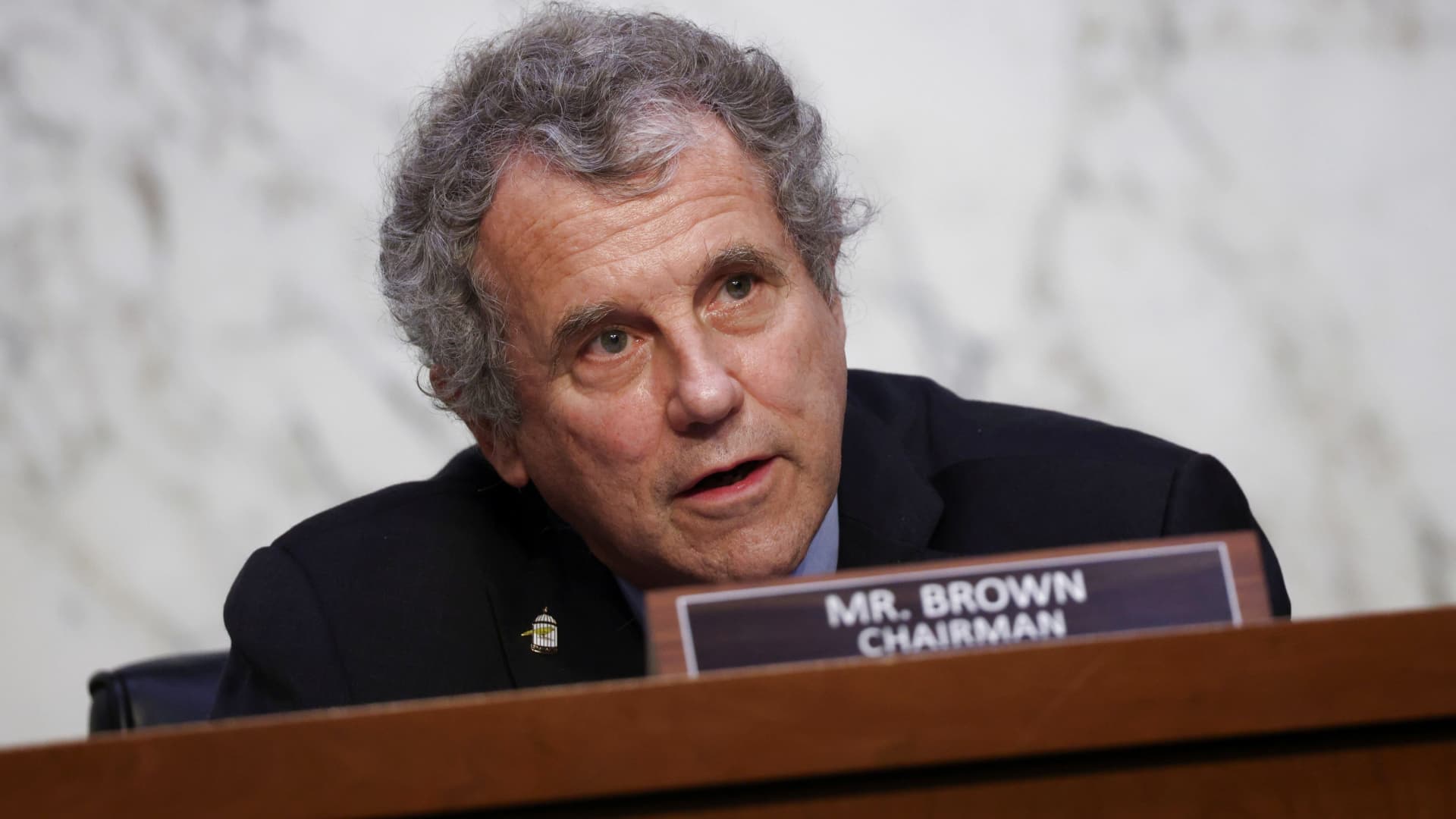Eight CEOs of the largest U.S. banks will face questioning at a Senate Banking Committee hearing in December, according to an announcement obtained by CNBC.
The Dec. 6 session will feature chief executive officers from JPMorgan Chase, Bank of America, Citigroup, Goldman Sachs, Bank of New York Mellon, Morgan Stanley, State Street and Wells Fargo.
The meeting is the third time that Banking Committee Chair Sherrod Brown, D-Ohio, will hold an oversight hearing with the heads of the nation’s biggest banks.
Brown set a combative tone in the hearing announcement, calling out banks for continuing to “make record profits and to reward corporations that raise prices on Americans.”
Read more of CNBC’s politics coverage:
“My commitment as chair of this committee is to always put the Main Street economy – and the workers who power it – at the center of everything we do,” Brown said.
“Part of that commitment is to hear directly from the biggest banks that hold too much power in the economy,” he said. “It’s our job to hold them accountable to their workers, to their customers, and to the American people.”
Brown and other Banking Committee members have ramped up oversight efforts in 2023, particularly regarding three banks that failed earlier in the year, Silicon Valley Bank, Signature Bank and First Republic.
The failure of First Republic in May was the biggest bank failure in the United States since the 2008 financial crisis. JPMorgan acquired First Republic’s deposits and a substantial majority of its assets.
In June, the committee advanced legislation authorizing the Federal Deposit Insurance Corp. to claw back compensation from senior executives of failed banks.
The bill, known as the RECOUP Act, sailed through committee with a 21-2 vote.
Senate Majority Leader Chuck Schumer, D-N.Y., said he plans to bring the bill to a vote by the full Senate., However, the current debate over a federal funding measure that would avoid a government shutdown has left little time for other bills.
The high-profile hearing could have political implications for Brown, who is set to run for reelection in 2024 from Ohio, a state that since he last was elected has seen voters increasingly swing Republican.





